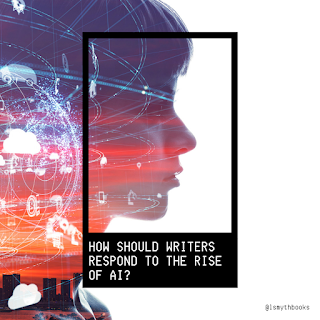The Profession That Isn't Taken Seriously
How many times have you told someone that you're a writer, only to be asked what you do for a living?
I just told you. I'm a writer.
Writing is one of those unlucky professions (along with many other artistic disciplines) that doesn't get the credit it deserves. Many times, it isn't even treated as a job, though someone had to write the advertisements you drive past every day. Someone had to write the novel you're reading this summer. Someone had to write the articles in your favorite magazine. At times, writing can even be lucrative - if you score a deal with one of the well-known publishers, or if you win a competition with a big prize. What does writing have to do in order to prove that it's a profession just like any other?
One of the first things people assume about modern-day authors (at least in my experience) is that they're living at home in their mother's basement, don't have a 'real job', and are probably under the age of twenty. For me, at least part of this is true! I live at home, my 'real job' is freelance writing, and I am definitely under the age of twenty. It follows that 1) I'm not a 'serious' writer, and 2) everyone else is just like me.
Wrong. Writing is one of the key professions in today's world, and here are just a few examples of how it's used in our everyday lives:
I just told you. I'm a writer.
Writing is one of those unlucky professions (along with many other artistic disciplines) that doesn't get the credit it deserves. Many times, it isn't even treated as a job, though someone had to write the advertisements you drive past every day. Someone had to write the novel you're reading this summer. Someone had to write the articles in your favorite magazine. At times, writing can even be lucrative - if you score a deal with one of the well-known publishers, or if you win a competition with a big prize. What does writing have to do in order to prove that it's a profession just like any other?
One of the first things people assume about modern-day authors (at least in my experience) is that they're living at home in their mother's basement, don't have a 'real job', and are probably under the age of twenty. For me, at least part of this is true! I live at home, my 'real job' is freelance writing, and I am definitely under the age of twenty. It follows that 1) I'm not a 'serious' writer, and 2) everyone else is just like me.
Wrong. Writing is one of the key professions in today's world, and here are just a few examples of how it's used in our everyday lives:
- Google informational articles
- Newspaper/magazine articles
- Books (of course!)
- Advertisements
- Everyday communication, such as email
- School projects
- Online tutorials
- Film scripts
- Resume writing
Writing can help you score your dream job, communicate a heartfelt apology when you've made a mistake, or thank someone you love for being there when you needed them. It's important, and it's underrated.
People often think that 'writing' is easy. After all, isn't it just putting words together in a grammatically correct pattern? Without delving into the idea that 'grammatically correct' doesn't seem to mean the same thing to non-writers as to writers, this explanation doesn't do writing justice. Ask poets, for example - they 'write' in the traditional, physical sense of the word, but they also 'write' in a purely artistic sense. They don't put any words together - they put the words together, the only right words, to communicate a message or a feeling. A well-written book requires skill in the same way that a well-designed building required a skilled architect. Think back on the last novel you wrote. Was it easy? Probably not. Did it take hours upon hours of patient editing, choosing the right words, once you'd finished the manuscript? Definitely.
This definition wouldn't exist without someone who knew how to write well.
People often think that 'writing' is easy. After all, isn't it just putting words together in a grammatically correct pattern? Without delving into the idea that 'grammatically correct' doesn't seem to mean the same thing to non-writers as to writers, this explanation doesn't do writing justice. Ask poets, for example - they 'write' in the traditional, physical sense of the word, but they also 'write' in a purely artistic sense. They don't put any words together - they put the words together, the only right words, to communicate a message or a feeling. A well-written book requires skill in the same way that a well-designed building required a skilled architect. Think back on the last novel you wrote. Was it easy? Probably not. Did it take hours upon hours of patient editing, choosing the right words, once you'd finished the manuscript? Definitely.
pro·fes·sion
/prəˈfeSHən/
noun
- 1.a paid occupation, especially one that involves prolonged training and a formal qualification."his chosen profession of teaching"


Comments
Post a Comment